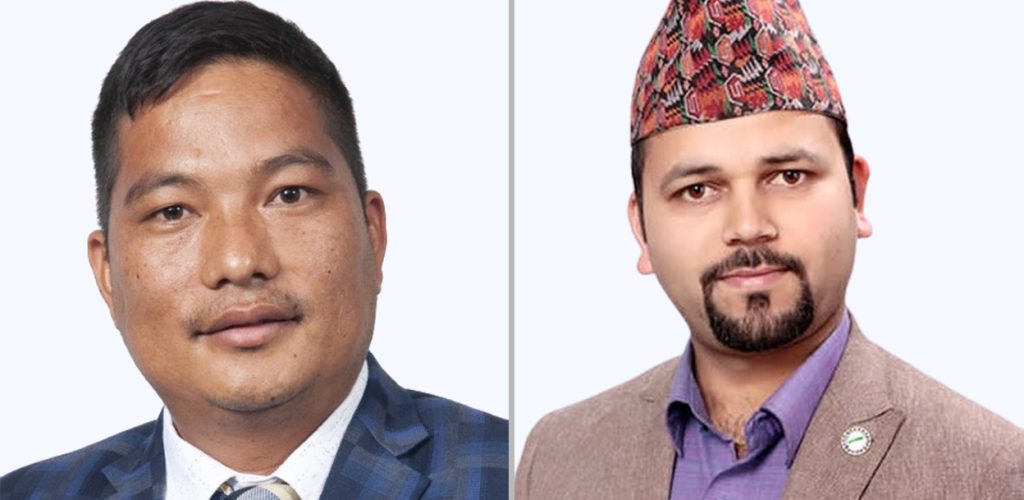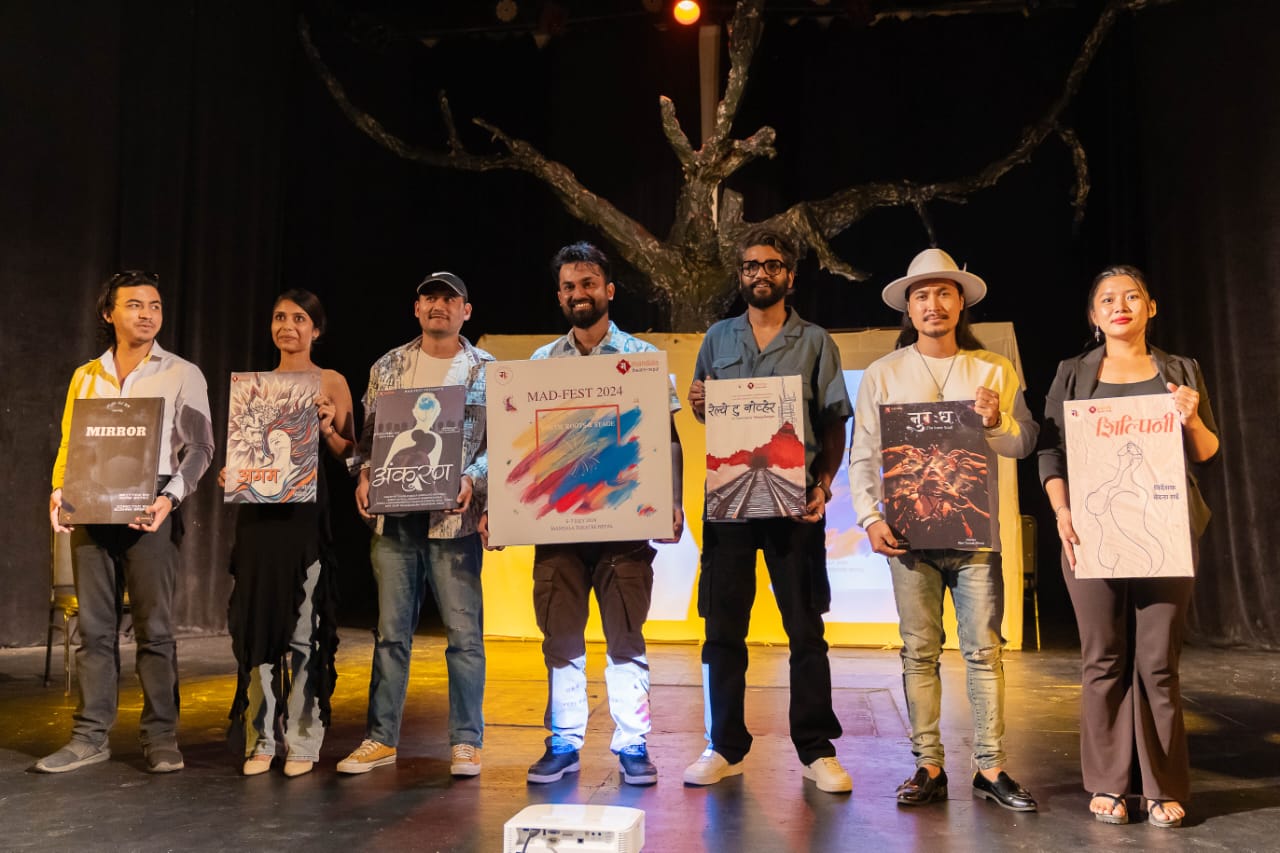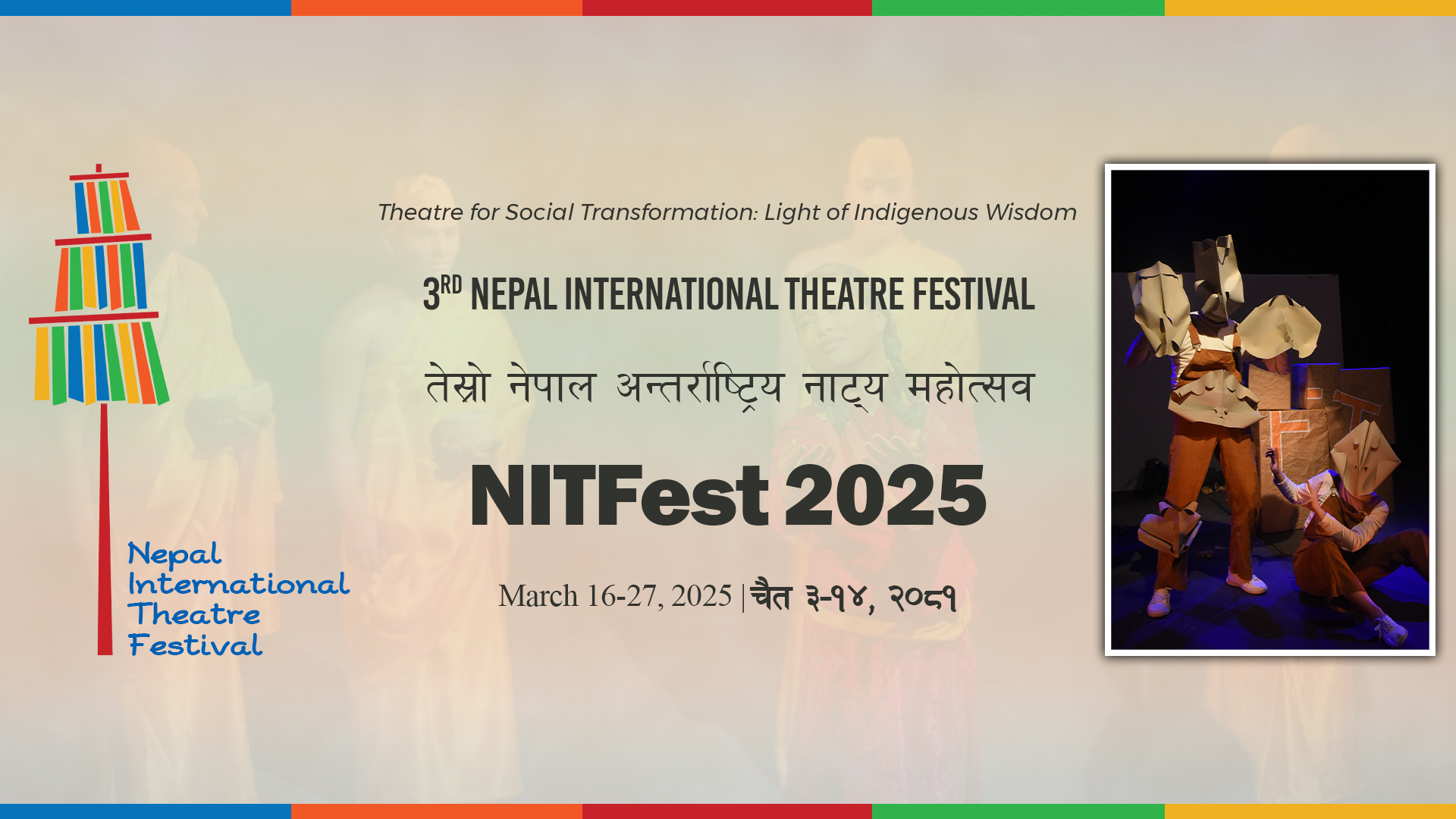
In a remote corner of the country, Nuhan dreams of becoming a dancer, his aspirations stretching as wide as the sky. However, coming from a low-economic family, he faces numerous challenges. Nuhan’s father insists he finds a well-paying job to support the family, leading to a clash between ambition and duty. The relentless pursuit of his dream takes a toll on Nuhan’s mental health, and he endures unimaginable pain.
Nuhan’s story is not unique. Many individuals face similar struggles, striving to become artists while societal pressures and conservative mindsets stifle their dreams, often with devastating consequences.
Swoopna, another dreamer, aspires to be a rap artist. His father, an ex-army officer, opposes his ambition and pressures him to join the British Army. Like Nuhan, Swoopna encounters numerous obstacles in his journey towards a rap career.
These poignant narratives are brought to life in the plays Nugdha, directed by Bijay Tamang Blown, and Mirror, directed by Sushan Basnet. These plays will be showcased at the Mandala Alumni Drama Festival (MAD-Fest), set to open on July 5 at Mandala Theatre, Kathmandu.
Although fictional, the directors believe that the stories of Nuhan and Swoopna resonate with countless individuals worldwide, reflecting universal themes of ambition, struggle, and the pursuit of dreams against all odds.
The story behind story

Director Sushan Basnet reveals a personal connection to the story he has brought to life on stage.
“My play explores the relationship between a father and son and their conflicting ideologies about career choices. I had a similar experience when I decided to pursue an acting career,” says Basnet.
Bijay Tamang Blown, director of Nugdha, shares that the story of his play is inspired by the life of its writer, Prabin Tamang, who is also a choreographer and the protagonist of the play.
“However, there has been some improvisation in the story,” adds Blown.
The development of Mirror followed a different path. Basnet was keen to explore the father-son relationship by connecting to the genre rarely discussed in the Nepali theatre scene. He shared his idea with his friend, writer Adan Batri. While searching for a compelling narrative, Basnet was struck by the concept of a hip-hop-based play.
“I had never seen a hip-hop-based play before, so the idea intrigued me,” says Basnet. “After discussing it with Batri, who is familiar with hip-hop and writes rap, we decided to create a hip-hop-based play.”
Through these plays, both directors aim to shed light on the universal and often challenging themes of ambition, family expectations, and pursuing dreams.
The directors’ dilemma

After finalising the themes and genres for their plays, directors Sushan Basnet and Bijay Tamang Blown faced a significant challenge: finding the right actors.
Blown’s play, Nugdha, required performers who could not only act but also dance proficiently. Despite calling for auditions, no one showed up.
“My writer, Nuhang Lama, and I searched intensively for actors from various batches. While other plays started rehearsing, we were still searching for actors,” recalls Blown. “This situation added extra pressure on us.”
After a few days, they finally found a few actors from Lab 14, recent graduates of Mandala Theatre. Slowly, actors from other batches were also added to their play. Despite the Lab 14 actors’ lack of experience, they decided to take the risk. Altogether, there are 15 actors in Nugdha.
Similarly, Basnet also struggled to find the right actors for his play, Mirror, which required performers who could both act and rap well.
“The actors would either be rapping well or just acting. We were struggling to find actors who were well-versed in both,” says Basnet.
Since the MAD-Fest is an initiative of Mandala Theatre’s alumni, there was a condition that all actors and crew members must be alumni of the Mandala Theatre. This condition posed additional challenges for both directors.
However, through their intensive search, the cast for Mirror was eventually assembled, with actors who fit the roles perfectly.
Despite these hurdles, both directors managed to bring their visions to life, highlighting their dedication and the collaborative spirit of the Mandala Theatre community.
Acting vs. Directing: A debutant’s perspective
Both debutant directors agree that there’s a significant difference between acting and directing. “Acting is much more about following the script while directing involves finding the right people, researching, guiding actors, and managing the entire production,” says Bijay Tamang Blown.
Blown adds, “As a director, I had to do extensive homework and find the right people for the play.” At one point, Sushan Basnet became so frustrated that he even considered stepping down. “Being a director is tough,” he admits.
Despite the challenges, both directors found the experience to be a valuable learning opportunity. Basnet acknowledges that his lack of experience led to many mistakes during the directing process. However, some of his experienced cast members helped with direction, blocking, and other elements.
“I didn’t know how to create sensible scenes or even the process of script reading. But now, I have learned a lot,” says Basnet.
Blown feels that working as a director not only taught him about the various aspects of acting but also fulfilled a long-held dream. “For a long time, I dreamed of performing in the auditorium of Mandala Theatre, and now I am directing a play for the theatre,” says Blown.
Both debutant directors are hopeful about their plays. “Since my play is based on hip-hop music, the most influential kind of music among youth today, I expect it to attract a young crowd,” says Basnet.
Through their struggles and triumphs, these new directors have gained a deeper understanding of the art of theatre, setting the stage for future success.
Mandala Alumni Drama Festival (MAD-Fest), will begin from July 5 to 7 at Mandala Theatre, Kathmandu.

























